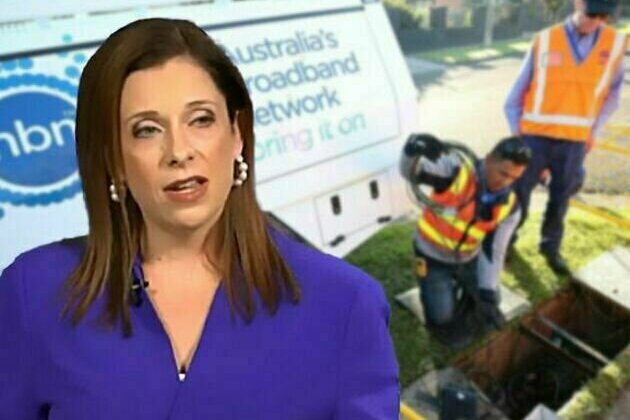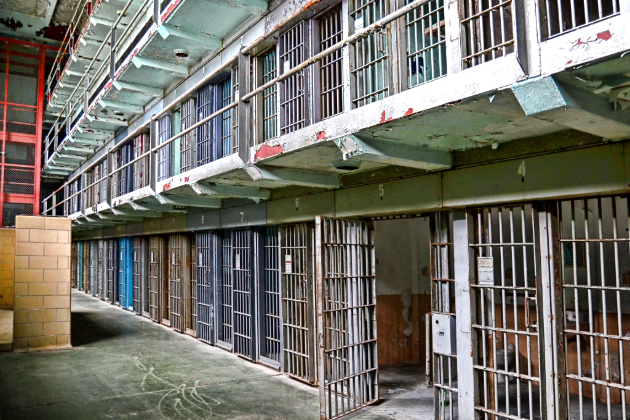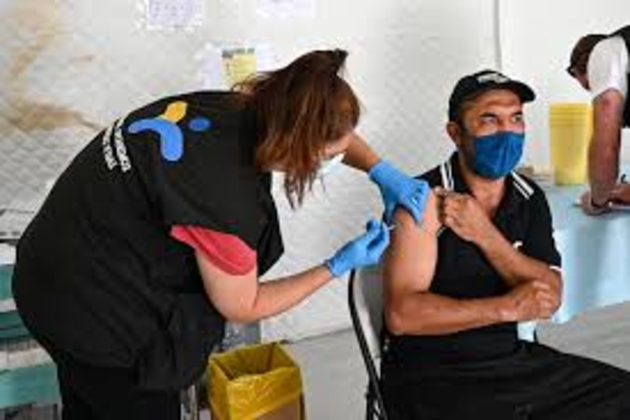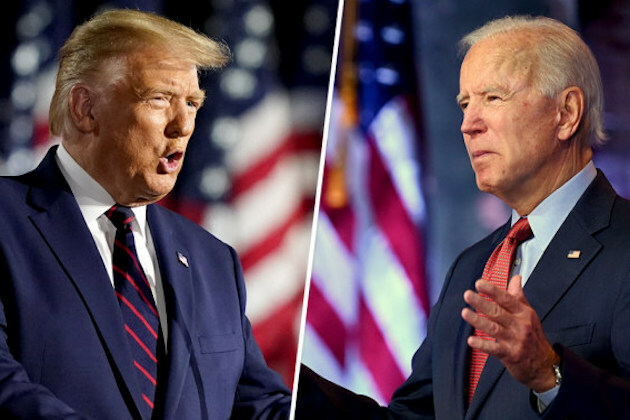How Australia lost its broadband lead and how to win it back
Independent Australia
21 May 2025, 03:30 GMT+10

As the world races toward fibre and 5G, Australia risks being left in the digital dust unless bold leadership steps in, writesPaul Budde.
THE LATESTOECD dataconfirms what many of us in the broadband sector have warned about for years: the digital divide is widening not just within countries, but between them. Fibre and 5G are expanding rapidly across OECD member nations. Fixed Wireless Access (FWA) is also gaining serious momentum. Yet Australia, once a global trailblazer in national broadband ambition, continues to fall behind.
According to the OECD's 2023 statistics, fibre now accounts for 42% of all fixed broadband subscriptions in the OECD, up from 38% the previous year. In contrast, Australia remains stuck with fibre penetration well below the OECD average, trailing not only digital leaders like Korea, Japan and Spain, but also smaller economies such as Lithuania and Iceland.
Whats particularly striking is how quickly other countries are moving away from legacy infrastructure. Digital subscriber line (DSL) now accounts for just 20% of fixed broadband connections across the OECD, a shift Australia has been slow to mirror. Our ongoing reliance on ageing copper and hybrid networks reflects a broader failure of vision and long-term planning a point I have made repeatedly in my earlier articles on the NBN.
Rethinking 5G: Why faster isnt always better, especially in regional AustraliaWe are losing service quality and reliability by judging networks by the wrong metrics.
Fibre momentum abroad, inertia at home
Many countries are investing aggressively in fibre as a future-proof solution, recognising its foundational role in education, health, remote work, digital business and civic life. Meanwhile, Australia is still retrofitting its National Broadband Network (NBN), patching up a system that was compromised from the outset by short-term politics and a poorly conceived multi-technology mix.
Although NBN Co is now talking aboutspeed leadershipand upgrading speed tiers, the reality is uneven access and affordability concerns. The CPI-linked wholesale price adjustments for FY26 announced earlier this year may sound modest, but they dont address the structural weaknesses baked into the network, nor do they correct the inequality between fibre-connected suburbs and those stuck on copper or wireless workarounds.
FWA and 5G: Helpful but not transformational
FWA isboomingglobally, with OECD countries seeing a 64% increase in subscriptions between 2020 and 2023. The U.S. alone experienced a 252% surge.
Australia does perform well in the adoption of fixed wireless and satellite broadband, ranking seventh and fourth, respectively, among OECD nations. These technologies play an important role in connecting rural and remote areas, particularly through the fixed wireless and satellite components of the NBN.
However, high usage is not necessarily a sign of digital leadership it often reflects limited alternatives. In New Zealand, a strong fibre rollout complements rural coverage. In Australia, by contrast, the persistence of copper and the slow fibre upgrade means too many users rely on stopgap solutions by default, not by choice
Meanwhile, 5G isalso rising, making up 28% of mobile broadband subscriptions across the OECD. Australian carriers are rolling out 5G at pace, but the benefits have yet to materialise meaningfully for most users. Without serious investment in fibre backhaul and thoughtful policy on spectrum and standards, 5G remains more marketing than transformation.
Fibre surge and new pricing threaten telco status quoA price increase in NBN services is expected based on a surge in high-speed fibre connections.
New government, new opportunity
Let me start by offering my warm congratulations to Communications MinisterAnika Wellson her appointment. Her background as a lawyer, a reformist minister in aged care and a mother of young children offers her a uniquely grounded lens on the real-world impacts of connectivity not just from a technical perspective, but from the standpoint of family life, education, health and work. That perspective is sorely needed.
Minister Wells is stepping into a portfolio that has long suffered from a narrow, fragmented view of telecommunications. Her predecessor,Michelle Rowland, brought a steady hand and a long history in the sector. Now, with a strong parliamentary majority and a new international benchmark for what is possible, Wells has the chance to reclaim the broader vision of broadband as a nation-building project.
We need to view digital infrastructure the way we view roads, energy grids and public health: not as services to be squeezed for profit, but as foundations for national wellbeing and prosperity. This was the original vision behind the NBN a vision that was politically compromised but never invalidated.
Broadband as a national good not a tech upgrade
In myprevious writing, Ive always argued that broadband should be treated as critical infrastructure, not a discretionary consumer good. It is a public asset that underpins productivity, inclusion and resilience. A full-fibre future, backed by clear policy, robust regulation and investment in underserved areas, is not a luxury it is a necessity for Australias long-term success.
Minister Wells has the chance to elevate the portfolio beyond its regulatory and telco tangle. Her legacy could be to refocus our digital infrastructure policy through the lens of equity, resilience and long-term national interest.
NBN Co's wireless upgrade a big boost, but Musk's Starlink still a challengeThe recent completion of NBN Cos fixed wireless upgrade program should be seen as part of a broader transition towards a more reliable and future-proofed network.
Time for transformative leadership
As Ivewritten before, Australia can no longer afford to tinker around the edges while the rest of the world races ahead. We need fibre as the baseline, not the upgrade. We need strong regulatory oversight of pricing and access. And we need to close the digital divide that leaves rural, remote and disadvantaged communities behind.
One of the most overdue reforms in this space is the strategic transformation of the Universal Service Obligation (USO). We recently addressed this issue when we talked aboutDirect to Device (satellite)services. The USO is a relic of the analogue era that still anchors funding and policy around fixed-line voice services, rather than around modern needs like mobile coverage, digital access and broadband reliability. Minister Wells is in a strong position to bring this into the 21st Century.
Reimagining the USO is not just a regulatory clean-up; its a vital opportunity to shift national policy toward inclusion, resilience and relevance in a digital age. It could deliver real improvements for remote communities, Indigenous areas and ageing Australians all issues close to her previous portfolio and political outlook.
With a strong government, a new minister and clear international benchmarks, Australia has the tools and the mandate. What we need now is leadership that recognises the strategic role of broadband and related digital infrastructure in the kind of nation we want to be.
Minister Wells, this is your opportunity. Lets not waste another technology cycle.
Paul Buddeis an IA columnist and managing director of independent telecommunications research and consultancyPaul Budde Consulting. You can follow Paul/X@PaulBudde.
Related Articles
- Fibre surge and new pricing threaten telco status quo
- NBN Co's wireless upgrade a big boost, but Musk's Starlink still a challenge
- Libs' latest NBN bashing: Big on blame, short on Liberal liability
- It's high time NBN Co focused on public benefit, not profit
- NBN's half-year results show solid performance but challenges remain
 Share
Share
 Tweet
Tweet
 Share
Share
 Flip
Flip
 Email
Email
Watch latest videos
Subscribe and Follow
Get a daily dose of Denver Sun news through our daily email, its complimentary and keeps you fully up to date with world and business news as well.
News RELEASES
Publish news of your business, community or sports group, personnel appointments, major event and more by submitting a news release to Denver Sun.
More InformationInternational
SectionJudge strips NYC of control over Rikers jail, cites rising violence
NEW YORK CITY, New York: A federal judge has decided to take control of New York's Rikers Island jail away from city officials due...
Two climbers, from India and Philippines die on Everest
KATHMANDU, Nepal: An Indian climber and a Filipino climber were the first to die on Mount Everest during the current climbing season...
Russia imprisons Australian for 13 years over fighting for Ukraine
MOSCOW, Russia: Russia has sentenced a 33-year-old Australian man to 13 years in a high-security prison for fighting with Ukrainian...
Tajikistan decriminalizes ‘likes’ on extremist social media posts
ALMATY, Tajikistan: Tajikistan has officially removed criminal liability for liking social media posts that the government deems extremist,...
Newsom plans cuts to migrant healthcare amid $16 billion revenue hit
SACRAMENTO, California: California Governor Gavin Newsom has proposed cutting back a free healthcare program for low-income undocumented...
19-year-old charged in planned mass shooting at US Military Base
DETROIT, Michigan: The FBI has arrested a 19-year-old man from Michigan, Ammar Abdulmajid-Mohamed Said, for allegedly planning a mass...
Colorado
SectionWalmart warns shoppers of price hikes amid rising tariffs
BENTONVILLE, Arkansas: Walmart shoppers are bracing for price hikes as the world's largest retailer prepares to pass on the impact...
Trump wishes Joe Biden speedy recovery from 'aggressive' cancer
WASHINGTON, DC: U.S. President Donald Trump has sent best wishes to former President Joe Biden and his family, following a shock diagnosis...
Adam Sandler mourns death of 'Happy Gilmore' alligator co-star
Los Angeles [US], May 17 (ANI): Adam Sandler recently remembered his 'Happy Gilmore' alligator as the sequel gets ready to hit screens....
How Australia lost its broadband lead and how to win it back
As the world races toward fibre and 5G, Australia risks being left in the digital dust unless bold leadership steps in, writesPaul...
10 Numbers Of Note About the Seahawks' 2025 Schedule
Ten numbers of note about the Seahawks 2025 schedule, which was released last week. John Boyle Buy Single Game Tickets The Seahawks'...
Cardinals To Participate In Joint Practice In Denver
Team will play Broncos in preseason for lone road game Darren Urban The Cardinals have only one road preseason game, but for a...












